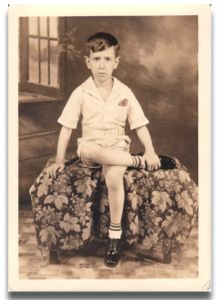 Upon rising each day and counting my blessings of family, health and home, I frequently also take a moment to give thanks for Turner Classic Movies. I have been a fan of vintage and classic films since my youth, but TCM almost daily exposes me to both high profile films I've long managed to miss and low profile gems I was never aware of.
Upon rising each day and counting my blessings of family, health and home, I frequently also take a moment to give thanks for Turner Classic Movies. I have been a fan of vintage and classic films since my youth, but TCM almost daily exposes me to both high profile films I've long managed to miss and low profile gems I was never aware of.Three Came Home would most certainly fit in the latter category though it was generally well received upon its release in 1950. It was based on the true story of American writer Agnes Newton Keith who, while living in Borneo during World War II, is captured by the invading Japanese and interned in a POW camp until the end of the war. Claudette Colbert portrayed Keith through her three and a half years of often harsh and brutal imprisonment.
Considering its postwar Hollywood pedigree, Three Came Home is often surprisingly forthright with its depiction of the conditions and treatment endured by Keith and her fellow prisoners. Beatings of women are frequently depicted and Colbert's character at one point survives an attempted rape by a guard, only to be later tortured for refusing to disavow the incident. She does find some degree of sympathy from the American-educated camp commander Lieutenant-Colonel Suga, who prior to the war was familiar with Keith's previously published book. Suga was played by Sessue Hayakawa, who would go on to be Oscar-nominated for a similar role in the 1957 film Bridge Over the River Kwai. Curiously, the film depicts the character of Suga somewhat sympathetically, portraying him as somewhat ignorant of the conditions around him. In reality, Tatsuji Suga, though documented by Keith and others as displaying a compassionate nature at times, oversaw prisoner camps notorious for torture, abuse and death. His legacy includes the infamous Sandakan Death Marches among other atrocities. He would likely have been executed for war crimes had he not commit suicide five days after his capture.
Agnes Newton Keith's book Three Came Home, from which the film was adapted, is no longer in print, but used copies are available through various online retailers. A 1947 Time Magazine review of the book observed:
Three Came Home doesn't try to tap tear ducts or beg reader sympathy. Mrs. Keith's story is full of suffering but singularly free of resentment. In a prefatory note that reads like a considered epilogue she rises above personal bitterness: "The Japanese in this book are as war made them, not as God did, and the same is true of the rest of us. We are not pleasant people here, for the story of war is always the story of hate; it makes no difference with whom one fights. The hate destroys you spiritually as the fighting destroys you bodily."
A profound observation on the part of Keith, that in many ways the movie adaptation manages to communicate.
Three Came Home is frequently shown on both Turner Classic Movies and the Fox Movie Channel.








2 comments:
I love this new blog.
I had a similar idea for one, but with things more recent.
You continue to amaze.
I have to agree with you about TCM. I have no clue what I would do without it!
Post a Comment